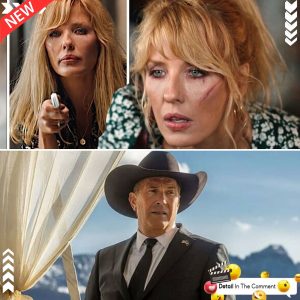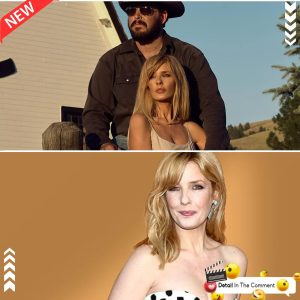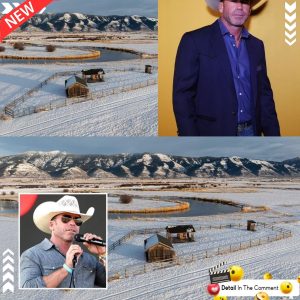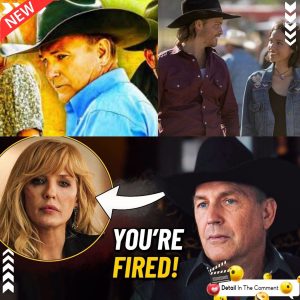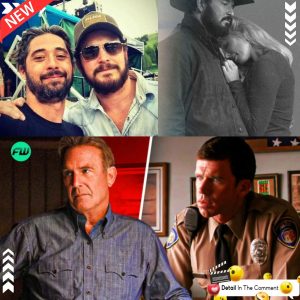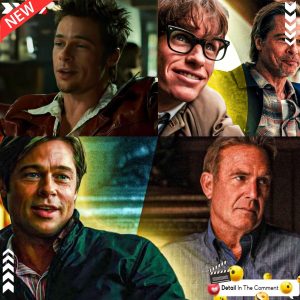There might not be a more appropriate and straightforward way to open an American Western than with a scene of a white settler tracing the foundations of the house he wants to build on some seemingly available plot of land. The colonial question at the heart of the genre is thus immediately introduced in Horizon: An American Saga—Chapter 1, the first film in Kevin Costner’s epic four-movie series (the second installment has already been shot) that he produced (at great cost to himself), cowrote, directed, and starred in. Costner’s perspective on that question, however, isn’t entirely clear in that opening sequence, but it does end with the settler and his young child being killed by Apaches who are defending their territory, highlighting their rightful anger. In this sequence, a rousing old-fashioned score, plenty of cross-fades, and an orange sunset give the brutal encounter the look of a monumental, foundational, almost elemental event, like a big bang—a natural, terribly meaningful catastrophe.
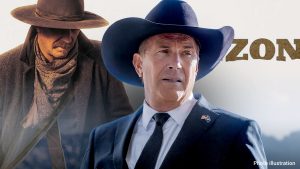
It is through such small yet symbolic stories that Costner starts to paint his very large and detailed picture of pre– and post–Civil War America. Jumping from one setting to another, the filmmaker introduces us to various archetypes of the American West, from the English settlers too posh and sophisticated to do any work while traveling on the Santa Fe Trail (Ella Hunt and Tom Payne), to the housewife with a dark secret (Jena Malone) and her naive husband (Michael Angarano) hoping to get rich through gold, to the foulmouthed sex worker (Abbey Lee) whom everyone despises, except for the hero (Costner, naturally), who finds himself protecting her. In a series of extended vignettes, their personal dramas unfold and sometimes intersect, with occasional time jumps to speed things up and show the consequences of their decisions. None of these stories are particularly original or compelling, retreading old tropes and recalling television both visually and structurally. (It’s hard not to think of Yellowstone, the Western series starring Costner; it was during that show’s hiatus that he made this film.) For instance, the past of the housewife, Ellen, comes back to haunt her when we learn that she once was a sex worker herself and killed a powerful criminal who had abused her: The idea that the Wild West allowed for self-reinvention but was also fueled by the exploitation of women is a staple of the genre—and could still be interesting to explore—but Costner struggles to keep all his plates spinning at once, offering only a quick glance at one prototypical story before moving on to the next one. Instead of making us feel the unbearable weight of history through this amalgamation of survival tales—or creating at least a sense of time and place—this first “episode” indeed functions as a technically efficient but not very appealing series pilot, setting the scene but not giving its protagonists enough room for us to get invested in them.

Making an American Western in 2024 means coming after a long line of films, the first succession of which established the genre’s often white supremacist and pro-colonial codes. Later, revisionist Westerns adapted these tropes to suit different eras, taking into account changing mentalities about the romanticization of America’s violent past and materialistic tendencies (think of The Wild Bunch and its explosive, balletic, devastating gunfights, or the spaghetti Western For a Few Dollars More), and, eventually, the oppressed were put at the center of the narrative, be they women or Indigenous people themselves. (Killers of the Flower Moon is the most recent example, but Soldier Blue from 1970 may be the most strident.) Costner, however, doesn’t seem all that interested in looking back with a critical eye, and he’s also not trying to tell a story about the past that could be relevant today. Instead, he’s aiming for the timelessness of myth and adopts a centrist approach: Colonialism was an unstoppable engine that everyone, Indigenous or white, was simply caught up in. After a deadly Apache attack, First Lieutenant Trent Gephardt (Sam Worthington, who seems determined to act in projects that will be made over several years or decades of his life) has to remind the surviving white settlers that this land is not, in fact, simply where they live, but that it belongs to Indigenous people; still, the pioneers refuse to leave. Costner spends time on the unwelcome inhabitants and their sorrow and helplessness but also cuts to the Apaches—they, too, are having internal disagreements about whether this attack was ultimately necessary. Yet if these two points of view could allow for some interesting ambiguity, revealing the moral dilemmas and doubts of people on both sides, in Costner’s vision, the two parties are stuck in a dynamic that is completely outside their control and has a will of its own—rather than one born of the colonizers’ endless thirst for more land. (Costner’s production company is in fact called Territory Pictures Entertainment.) No one is really responsible. Playing a blasé colonel, Danny Huston puts it bluntly: “Let this place do what it’s done since time immemorial.” But isn’t this time still relatively fresh in the Apaches’ memory?
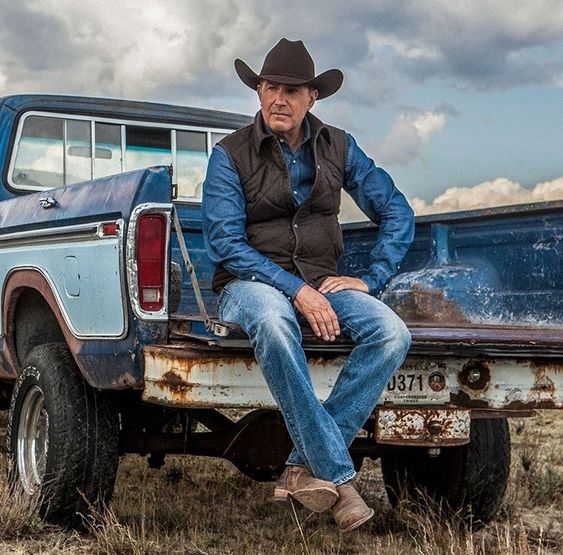
This idea of a manifest destiny that pushes for colonization, whether its participants approve of it or not, appears as much in the film’s aesthetics as it does in its narrative. Costner’s camera repeatedly focuses on and emphasizes old-fashioned and at times offensive clichés of the genre: a dying white man refusing to let an Apache take his violin, thus defending civilization against barbarism until his last breath; a priest solemnly digging graves for fallen pilgrims on Apache ground; men working hard to build infrastructure where there was once only nature; a teenage son choosing to fight back against the Indigenous alongside his father rather than hiding with his mother and sister. To quote Vampire Weekend: “Untrue, unkind, and unnatural, how the cruel, with time, becomes classical.” If his old-school conservatism wasn’t apparent enough, the filmmaker also gives his actors cheesy dialogue that even John Wayne couldn’t have made cool. (“It’s what drove us across the ocean to this country in the first place: hope.”) Whether they’re full of threat or flirtatious (as between Sienna Miller’s widow, Frances Kittredge, and Gephardt), conversations tend to be tedious exchanges of witty comebacks, with no one saying what they really mean until they’ve exhausted all possible innuendos and the scene just cries out for a resolution—an unintentional parody of the typically charming repartee of the best cowboys of the silver screen, from Wayne to Jimmy Stewart to Montgomery Clift. So far in the film series, only Luke Wilson and Michael Rooker come across as believable men of the time, the former thanks to his Southern drawl and natural ease, the latter because of his ability to find depth and emotion in the otherwise one-dimensional, obedient, and kind sergeant he must play.
But what about Costner the actor? Naturally, he plays the strong, silent type—always his strongest suit—as Hayes Ellison, a straight shooter who accidentally gets involved in the revenge campaign that threatens Ellen because of her past rebellion. Although he only
